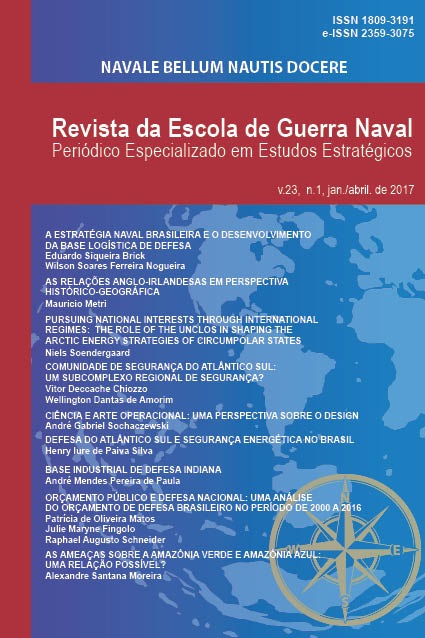Pursuing national interests through international regimes
the role of the unclos in shaping the arctic energy strategies of circumpolar states
Palavras-chave:
The Arctic, Maritime Law, UNCLOS, Energy, International RegimesResumo
The article analyses the role of the United Nations
Convention on the Law of the Sea (UNCLOS) in shaping
the energy strategies of Arctic states, and in defining the
mode of their regional interactions. An institutionalist
perspective is applied in order to understand the different
mechanisms and incentives, which international institutions
and regimes may constitute, in terms of spurring the
cooperative behavior of self-interested actors. The analysis
is focused upon the submissions made to the Commission
on the Limits of the Continental Shelf (CLCS) by those of
the circumpolar states that have ratified the UNCLOS, in
order to be able to amplify their access to potential energy
recourses of the Arctic subsoil. The findings indicate that
this regime has constituted a significant instrument, in
order to mold Arctic state´s energy strategies in line with the
adherence to commonly acceptable procedures for territorial
demarcation. Yet, this state of affairs relies upon the main
Arctic player´s essential disposition towards avoiding
conflict, and may thus ultimately depend upon antecedent
variables of a broader geopolitical character.








 Esta obra está licenciada com uma Licença Creative Commons Atribuição 4.0 Internacional.
Esta obra está licenciada com uma Licença Creative Commons Atribuição 4.0 Internacional.